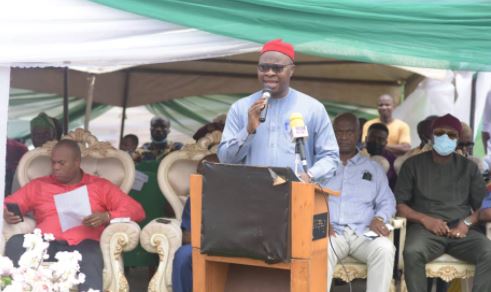The National Agricultural Land Development Authority (NALDA) has distributed agricultural inputs to farmers in Abia, Kebbi, and Yobe to maximize crop cultivation for improved yields and ensure the availability of staple food for the citizenry amidst dwindling global resources and food shortages.
The Executive Secretary of NALDA, Prince Paul Ikonne, while addressing farmers in Abia State, assured them that his agency will continue to support farmers with agricultural inputs regularly, stating that the contact details of all the beneficiaries have been captured in the agency’s database and more farmers will be added to the list from time to time.
He highlighted that the essence of the empowerment program is to increase food security, adding that the program is a fulfillment of President Bola Tinubu’s promise to ensure Nigerians get enough food at affordable prices.
First Lady Partners NALDA, Launches Initiative to Support Women Farmers
“The essence of what we’re doing here today is to ensure Nigerians understand the importance of farming, make sure we produce what we eat, and reduce the price of food in the market. We are expecting nothing less than 340 hectares to be cultivated by these farmers,” he said.
Beneficiaries in Abia and Yobe States received high-grade fertilizer, herbicides, and improved maize seeds, while beneficiaries in Kebbi received improved rice seeds that can effectively cover half an hectare of farmland.
Oyo Govt. Commences Third Phase of Inputs Distribution to Farmers
In Abia, beneficiaries from all local governments of the state, including those nominated by the state government and various farmer associations, gathered at the NALDA Institute of Agribusiness and Entrepreneurship, IsiAla Okpu community in Osisioma Local Government Area, to receive empowerment packages from NALDA officials.
It would be recalled that President Tinubu had declared a state of emergency on food, hence the move by NALDA to complement the president’s food security through an empowerment program to cushion the effect of the high cost of living.



